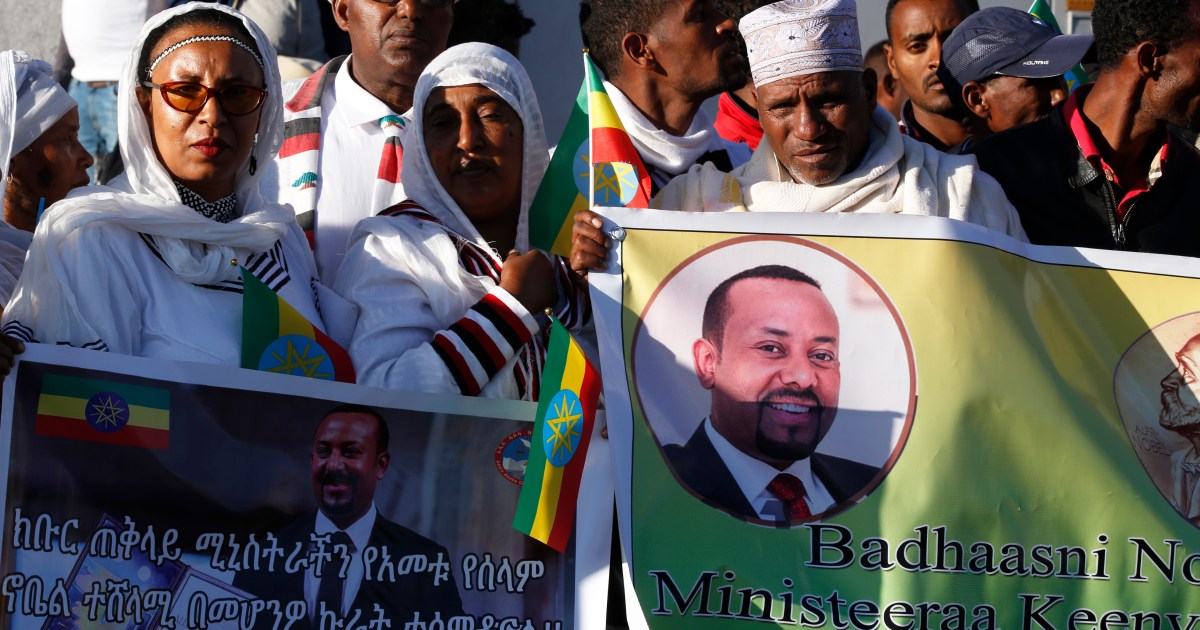The Washington Post said in a report that the crises in Ethiopia have increased steadily since its Prime Minister, Abiy Ahmed, was awarded the Nobel Peace Prize last year.
The report - prepared by Max Perak, director of the newspaper’s office in the Kenyan capital, Nairobi - stated that Ethiopia suffers from ever-increasing political unrest, undermining some of the “lofty” hopes held by Abiy Ahmed by his supporters and the award-awarding committee in Oslo, Norway.
The 2019 Nobel Peace Prize was awarded to the Ethiopian Prime Minister in recognition of his efforts to establish peace with neighboring Eritrea, after years of hostility during which a border war lasted from 1998 to 2000.
The newspaper stated that, since his inauguration as prime minister in 2018, Abiy Ahmed has been engaged in setting up a reform agenda, which included the extension of civil liberties, the release of political prisoners, liberalization of trade and a promise to hold the first free and pluralistic elections in the history of Ethiopia.
But a series of crises hit the country after that, slowing the pace of reforms and raising questions from many about whether Abiy Ahmed was crowned with the Nobel Peace Prize was too early.
Widespread ethnic and political violence, arrests of opposition leaders, and severe polarization around the promised election schedule - which was postponed following the outbreak of the new Coronavirus pandemic - have increasingly destabilized the country.
The report quoted Henrik Urdal, director of the Peace Research Institute in Oslo, which closely monitors the process of awarding the Nobel Peace Prize, as saying that the award committee "has consistently awarded its prizes to ongoing processes - as is the case with regard to Ethiopia - rather than past achievements."
Urdal said he believed that awarding the award to Abiy Ahmed was perhaps the "greatest risk" taken by the awarding committee, but he believed it was too early to describe this decision as a "failure."
And Abi Ahmed had written - in an article published by the British "Economist" magazine last month - that his commitment to making reforms "remains firm despite the many obstacles that the country has encountered over the past two and a half years."
However, he acknowledged the difficulty of building peace in a country with a long history of authoritarian regimes.
Ethnic tensions
Perhaps the biggest challenge facing the Ethiopian Prime Minister - the newspaper says - is the restlessness in the Oromia region, whose residents - who belong to the largest ethnic group of Oromo in Ethiopia - complain of the political marginalization they have been subjected to with successive previous governments.
Ironically, Abi Ahmed also belongs to the same ethnicity, and the Oromean leaders accuse him of continuing to push them out.
Troubles broke out in the region after the assassination of a famous singer on June 29, and more than 200 people were killed, some of them in clashes with the army and police.
In addition, more than 9,000 others were arrested, and nearly two-thirds of them were accused of committing crimes, including Jawhar Muhammad and Bekele Gerba, the two most powerful opposition leaders.
A member of the defense committee for the two leaders claimed that the charges against them were politically motivated, with the aim of preventing the opposition from participating in the upcoming elections, which he believed would have won.
The author of the report believes that another political crisis is looming in the northern region of Tigray, which has gone ahead with holding its local elections despite the National Elections Commission suspending all voting operations due to the Coronavirus pandemic.
Last Wednesday, the Ethiopian parliament approved a cut in funding for this region, a decision that an official in the region described as "tantamount to a declaration of war."

